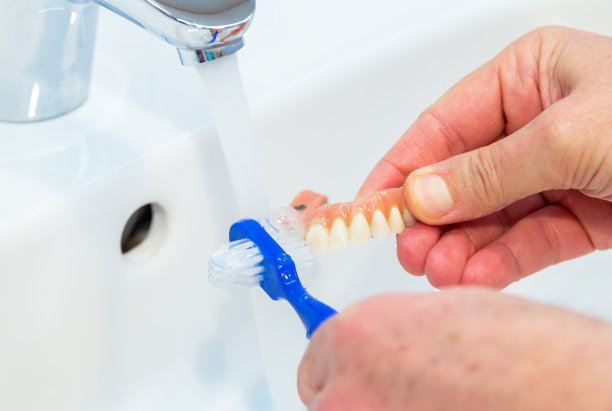Summary: Dental health is critical for overall wellbeing, and sometimes extracting a tooth is necessary to ensure it. This article explains the importance of tooth extraction, covering four key aspects: alleviating pain, preventing the spread of infection, addressing overcrowding, and improving oral hygiene. By exploring these topics, we aim to provide insights into why tooth extraction may be a beneficial and necessary choice for maintaining optimal dental health. Ultimately, understanding these factors can lead to better decisions regarding personal dental care.
1. Alleviating Pain and Discomfort

One of the primary reasons for tooth extraction is to alleviate pain. When a tooth becomes infected or severely decayed, it can lead to severe discomfort that affects daily life. In many cases, the pain can be persistent and intense, making it difficult to focus on anything else. By removing the problematic tooth, individuals often experience immediate relief from the discomfort they have been enduring.
Additionally, pain associated with dental issues can sometimes radiate to other areas of the body, including the jaw, ear, and even the head. This referred pain may confuse some individuals, leading them to believe that other health issues are at play. Extracting the painful tooth can remove the source of this discomfort, allowing for a more comprehensive recovery and improved overall wellbeing.
Moreover, for individuals with dental anxiety, knowing that they are addressing a source of pain can alleviate mental stress. The fear of dental procedures can often stem from the anticipation of pain. Knowing that extraction may eliminate a painful tooth can encourage patients to seek out the necessary treatment sooner rather than later.
2. Preventing the Spread of Infection
Another significant aspect of tooth extraction is infection control. When teeth become badly infected, they can serve as reservoirs for bacteria that may spread to other areas of the mouth or even into the bloodstream. This poses a serious risk for both oral and systemic health. By removing the infected tooth, individuals can drastically reduce the risk of developing further complications.
Furthermore, untreated infections can lead to abscess formation, which may require more invasive treatments than a simple extraction. If bacteria from an abscess enter the bloodstream, patients could face serious health risks, including sepsis. Thus, prompt extraction can often prevent these severe health consequences, ensuring a more favorable health outcome.
Additionally, preventive care after a tooth extraction can help maintain oral health. After removal, patients are encouraged to follow up with their dentist for cleanings and check-ups that can monitor for any signs of potential infection in surrounding teeth. Thus, tooth extractions can ultimately lead to a lower incidence of oral infections post-treatment.
3. Addressing Overcrowding and Misalignment
Tooth extraction is often a necessary step in orthodontic treatment for patients with overcrowded teeth. When there is not enough space in the mouth for all teeth, overcrowding can cause misalignment, leading to bite issues and difficulty maintaining oral hygiene. By removing one or more teeth, dentists can create the necessary room, allowing for orthodontic appliances like braces to function more effectively.
In overcrowded mouths, teeth can grow in crooked or misaligned, leading to an increased risk of wear, decay, and gum disease. Extracting teeth can promote better alignment overall, reducing the chances of developing severe dental issues in the future. It also enhances the aesthetic appearance of a patient’s smile, which can boost self-esteem and confidence.
Furthermore, the long-term benefits of addressing overcrowding through extraction are profound. By allowing for a straighter and more functional bite, patients may enjoy better chewing function and less strain on their jaw joints. Overall, proper alignment contributes significantly to ones overall dental health and comfort.
4. Improving Oral Hygiene Practices
Tooth extraction can also lead to improved oral hygiene practices. When teeth are overcrowded or misaligned, maintaining proper oral hygiene becomes challenging. It can be difficult to reach certain areas of the mouth with a toothbrush or floss, leaving space for plaque build-up and potentially resulting in cavities or gum disease.
After tooth extraction, patients often find it easier to practice daily oral hygiene. With fewer teeth to clean, it becomes simpler to maintain a routine that effectively removes food particles and plaque from the mouth. Increased ease in oral care can lead to healthier gums and teeth condition, reducing overall dental issues in the long run.
Moreover, post-extraction, patients are generally more motivated to stay on top of their dental hygiene routines. Understanding the importance of maintaining the remaining teeth and preventing future complications encourages better habits, including regular dentals visits and proper flossing and brushing techniques.
Summary:
In conclusion, the extraction of a tooth can significantly impact overall dental health and wellbeing. The reasons for extraction—such as alleviating pain, preventing infection, addressing overcrowding, and improving hygiene—serve as essential considerations for patients. Taking proactive steps toward addressing these dental issues can ultimately lead to a healthier mouth and improved quality of life.
This article is compiled by Vickong Dental and the content is for reference only.
Vickong Dental
Vickong Dental is a large medical group established in Hong Kong in 2008 by professors from well-known medical universities in Guangdong and Hong Kong, as well as medical doctors from key national '985' universities (including Master's supervisors and senior professors). The chain of branches brings together expert dentists with PhDs and Master's degrees from Hong Kong and Mainland China, committed to providing high-quality dental treatment.
"Vickong Dental Practices the University Motto of 'Healing and Serving Society,' with a Stable Operation for Sixteen Years. It Has Been honored with Hong Kong Enterprise Leaders's Choice,' and is a Global Trusted Implant Center for the Nobel Implant System. Recommended by Hong Kong Metro Broadcast and Guangdong Television, it Serves Customers from Over Thirty Countries and Regions, Gaining the Trust and Favor of Citizens from the Guangdong-Hong Kong-Macau Greater Bay Area and Surrounding Cities.

Thousands of customers' unanimous praise
The most recognized and highly recommended dental service by customers in the Guangdong-Hong Kong-Macau Greater Bay Area
We Ensure You Receive Detailed Care and Attention Here
Hong Kong standards, Shenzhen prices, Your Trusted English-speaking dentists

Vickong Dental Medical-Grade Instrument Disinfection Process
Vickong Dental Medical-Grade Instrument Disinfection Process

Vickong Dental Chain: A Warm and Comfortable Environment for Treatment






Appointment Hours

Q&A
Why choose Vickong Dental?
Vickong Dental practices the university motto 「Medicine to Benefit Society」, with each branch bringing together highly qualified dentists with doctoral and master’s degrees from Hong Kong and the Mainland, and has maintained seventeen years of steady operation。Recipient of 「2024 Hong Kong Enterprise Leaders Brand」, 「2025 Hong Kong Enterprise Leaders Brand」, a Nobel Biocare Global Trusted Implant Center, and a brand recommended by Metro Radio Hong Kong and Guangdong TV。
To date, we have served customers from more than thirty countries and regions,earning exceptionally high word-of-mouth recognition and trusted recommendations from residents across the Guangdong-Hong Kong-Macao Greater Bay Area and surrounding cities
We have eight major branches in Zhuhai、Shenzhen,and a consultation and service assurance center in Hong Kong,so you can book a free consultation at any time for any questions,which is very reassuring.
If I do not accept the quotation after the CT scan, will I be charged??
No! As long as the actual treatment has not started, you will not be charged any fees.
Will there be any additional charges during the treatment process?
No, there won’t be any additional charges. Before treatment begins, we will clearly explain the treatment plan and its corresponding fees. Only after the patient agrees and signs the consent form will we proceed with the dental service.
Can I pay in Hong Kong dollars?
Yes. Vickong Dental accepts payment in Hong Kong dollars. The amount will be converted based on the exchange rate of the day, and the applicable rate will be clearly communicated to you in advance.
Can I reschedule my appointment at any time?
Yes. Please contact us via **WeChat** or **WhatsApp** as early as possible, providing your original appointment time and details, along with your preferred new date and time slot for rescheduling.













